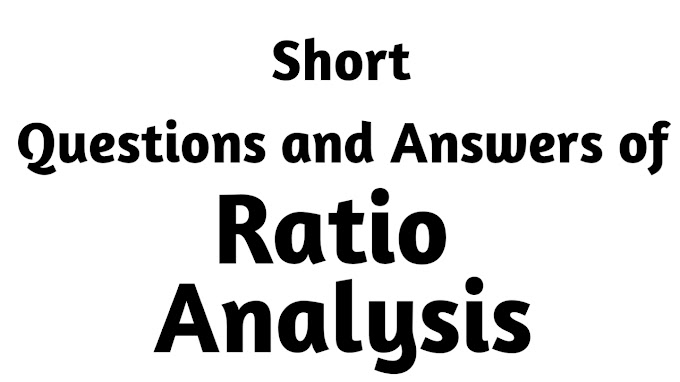Calculating cash flows
For
the purpose of preparing cash flow statement we must know how to calculate or
drive the figures to be shown on the statement. In this section, we will show
how different figures are calculated for each categories of cash flow (e.g.,
operating activities; investing activities; and financing activities).
Net Cash Flows from Operating Activities
There
are two methods which can be employed to calculating this figure:
(a)
Direct Method; and (b) Indirect Method.
AS-3
allows enterprise to calculate the net cash flows from operating activities
using either method. Whichever method is adopted, same figure for net cash
flows should be derived.
Direct Method
Under this method, the required figures are calculated
by employing information contained with the accounting records of the enterprise. These records are used to
identify cash movement relating to operating activities. To calculate net cash
flows from operating activities.
Indirect Method
Under this method, required figure is is calculated by
employing information contained in the Profit and Loss Account and Balance Sheet.
This method is does not use information contained within the accounting records
of the enterprise.
The
‘net profit before taxation’ figure in the accounts provides the starting point
for calculations. For calculating cash flow from operating activities, certain
adjustments are to be made in the net profit before taxation. The different
adjustments are discussed below:
1.
Depreciation-: At the time of
calculating profit/loss, depreciation is debited to Profit and Loss Account of
the enterprise. It will not involve any movement of cash. This is simply a book
entry. Therefore, depreciation is to be added back for calculating cash flow
from Operating Activities.
2. Profit or Loss on Sale of Fixed Assets-: For
calculating profit/loss, loss on sale of fixed assets is debited to Profit and
Loss Account. Similarly, profit on sale of fixed asset is credited Profit and
Loss Account. It will not involve any movement of cash. These are simply book
entries. Therefore, loss on sale of fixed assets is to be added back and profit
on sale of fixed asset is to be deducted for arriving at the cash flow from
Operating Activities.
Sale proceed of fixed assets will, of
course, result in cash inflow but this inflow will be shown in the Cash flow
Statement under Cash flow from Operating Activities.
3.
Interest Paid/Received-: Interest
paid/received may also appear in the Profit and Loss Account of an enterprise.
Although these items will result in cash movements, they must nevertheless be
adjusted for calculating cash flow from Operating Activities because these
items will be dealt with elsewhere in the Cash Flow Statement.
4.
Stock, Debtors and Creditors-:
Change in the level of stocks, debtors and creditors must also be taken into
account for calculating cash flow from operating activities. Whereas an
increase in stock or debtor will decrease the cash inflow from operating
activities. Similarly, a decrease in creditors will reduce cash. Again, an
increase in creditors will effectively increase the cash available to the
enterprise.
5.
Bills Receivable and Bills Payable-:
Just like debtors, a decrease in bills receivable will increase the cash inflow
from operating activities. Whereas an increase in the bills receivable will
decrease the cash inflow from operating activities.
Like
Creditors, a decrease in bills payable will reduce cash. Similarly, an increase
in bills payable will effectively increase the cash available to enterprise.
6.
Prepaid Expenses and Outstanding Expenses-: A decrease in prepaid expenses will increase the cash
inflow from operating activities. Conversely an increase in the prepaid expenses
will decrease the cash inflow from operating activities.
A
decrease in outstanding expenses will reduce cash. Similarly an increase in outstanding
expenses will effectively increase the cash available to the enterprise.




















0 Comments